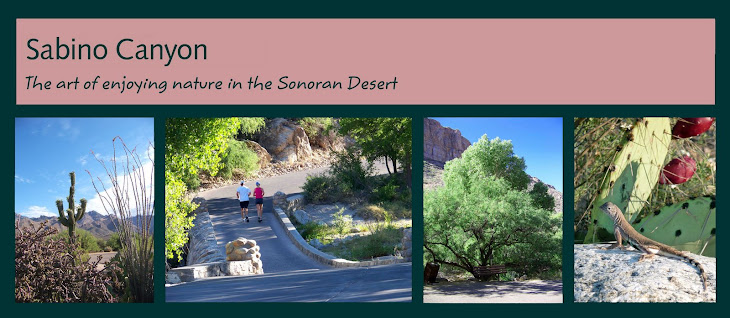 Attractive
Attractive While not overly showy, cactus wrens are aesthetically pleasing in appearance. The most distinctive features are the white eye stripe and spotted breast.
Conspicuous
With their perky personalities, cactus wrens are among the easiest birds to see and hear in southwest deserts. Larger and less shy than other wrens, they're simple to find and photograph.

 Memorable song
Memorable songThe cactus wren's vocalization is a harsh non-melodic chug-chug-chug that sounds more like a car engine trying to turn over than a bird singing. This is a sound often associated with southwest deserts that some people find charming. Here's a sound clip from Cornell Laboratory of Ornithology of the cactus wren.
 Domed nests
Domed nestsCactus wrens are prolific nest builders and make many spherical football-sized structures year-round. The nests are primarily made of grasses and are often built among the spiny branches of chain fruit cholla cacti. Most of the nests are dummies used for roosting. The nests chosen for breeding are lined with soft feathers.


 Entertaining
Entertaining Cactus wrens are fun to watch. With curious natures, they investigate everything. They noisily forage on the ground for insects, looking under leaves and turning things over.
 The above picture is of a young cactus wren on my patio in the summertime. All of the other pictures were taken recently at Sabino Canyon. Click on any picture to enlarge.
The above picture is of a young cactus wren on my patio in the summertime. All of the other pictures were taken recently at Sabino Canyon. Click on any picture to enlarge.Also, check out a rare Chestnut-sided warbler that Kathiesbirds of Sycamore Canyon recently found at Sabino Canyon.
This post is included at I and the Bird #93 at Vickie Henderson Art, thank you Vickie!

What a wonderful post! Your photos and information are great. I love these guys too.
ReplyDeleteI so enjoyed the cactus wren when I hiked the Grand Canyon and found it's song a delight. Guess I didn't notice a lot of other birds.
ReplyDeleteThank you for this tribute to the cactus wren, a wonderful desert bird.
These birds sound as though they are quite something to see and hear!
ReplyDeleteGreat pictures. They look like fun birds to watch. I enjoy the quail that visit my garden. It's great to live in a place where you can watch the wild things.
ReplyDeleteThis comment has been removed by the author.
ReplyDeleteGreat pictures and information! I would love to have a chance to watch these birds!
ReplyDeleteGreat wren info and photos. The scenery is stunning!
ReplyDeleteI agree that cactus wrens are a great emblem for your state! Whenever I visit Arizona I like to (carefully) look for their nests in the jumping chollas. You are lucky that you do not have to share your state bird with others as we do in Oregon.
ReplyDeleteAbsolutely great photographs. I love how they build their nests.
ReplyDeleteGreat post, Diane. They are really cute.
ReplyDeleteMy favorite genus of wren :)
ReplyDeleteI'll have to write about the Campylorhynchus in Venezuela.
Diane these are excellent captures of the Cactus Wren and great information about a beautiful bird. Welcome to IATB carnival! I hope you post many more entries to this fun event.
ReplyDeleteSince we dont get these birds here in India, I really enjoyed looking - and listening! Are they common all-year round?
ReplyDeleteWhat a neat wren! I just checked the range map, and it looks like I wouldn't have to go far to see a Cactus Wren. I'm glad I learned about them here on your blog. Thanks!
ReplyDelete